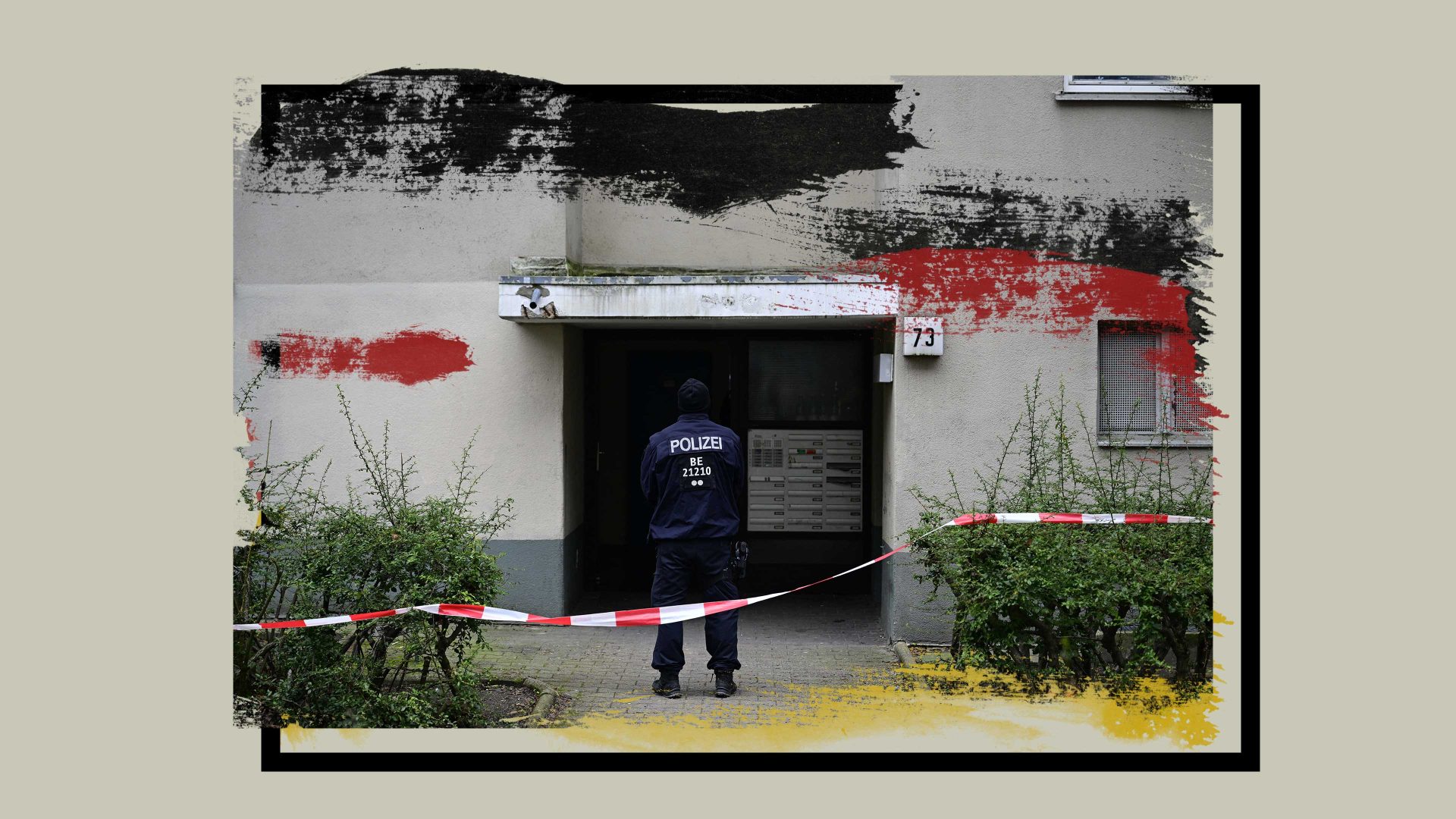“Karma fucks everyone, including you,” the title of a Facebook page boldly proclaims, accompanied by a smiley sporting two raised middle fingers. And indeed, karma has now come calling for Daniela Klette, a follower of this FB group and, more importantly, one of Germany’s most-wanted criminals.
Last week, police arrested the former member of the Rote Armee Fraktion in Berlin. The RAF, as we commonly refer to the armed group, terrorised West Germany from the 1970s until the early 90s. They injured and murdered US soldiers, business leaders, members of the justice system, diplomats, politicians, their drivers, bodyguards, and even a Lufthansa pilot whose plane they had hijacked to secure the release of RAF-founders Andreas Baader and Ulrike Meinhof from prison.
Finally, in 1998, the group declared it had disbanded. However, despite a rambling 15-page farewell statement worthy of a five-red-star-rating (“The revolution says: I was, I am, I will be”), they never provided closure to the victims’ families by answering the many unsolved questions.
Even today, small radical left circles romanticise the RAF. A known meeting spot in Hamburg, the Rote Flora, displayed a banner stating “We stand together”, extending wishes of “health and happiness” to Klette. The Rote Hilfe (Red Help), a charity fundraiser for left wing radicals, labelled Klette’s arrest the result of “decades-long persecution rage”.
But if such rage really existed, how could the now 65-year-old Klette have lived underground for 35 years? Admittedly, “underground” may be slightly exaggerated. Judging by Klette’s Facebook profile under the alias Claudia Ivone, she seemed pretty above ground, enjoying forest walks and practising capoeira at a Brazilian dance school in Berlin.
She must have felt secure enough to post group photos with her dance-mates. Unsurprisingly, she doesn’t much resemble her 1980s mugshot.
Equally unsurprisingly, police seized a bazooka, a Kalashnikov, an Italian machine gun and a Heckler & Koch P7 along with ammunition from the Kreuzberg flat where Klette had lived under a fake Italian passport for the last 20 years.
This part of Berlin isn’t the most original hiding spot for a far left terrorist, but it allows for an anonymous life among like-minded spirits. Kreuzberg, where extremists regularly clash with police on May 1, is the capital of anti-capitalism.
Experts now hope (but doubt) that Klette’s arrest will result in new information regarding the so-called third RAF generation, about whom extremely little is known.
The first generation terrorists mostly perished in jail, either through hunger strike or suicide, fuelling the myth of state-approved murder and attracting new followers to the cause. The RAF’s second generation, some of whom were safely harboured by the Stasi in the GDR until the fall of the Berlin Wall, largely served maximum sentences of up to 26 years.
Of the 33 murders attributed to the RAF, however, 10 were committed by the third generation – and nine remain unsolved.
While Klette isn’t directly connected to these murders, her DNA was found after attacks on a prison construction site and on the US embassy in Bonn. Her membership of a terrorist organisation is subject to a statute of limitations, but more recently, police in Lower Saxony were searching for her and two RAF accomplices due to a string of armed robberies, amassing around a million euros.
Former terrorists don’t exactly qualify for retirement benefits.
No wonder the German public remains gripped. This month, a German mini-series about the fatal roadside bomb attack on Deutsche Bank chairman Alfred Herrhausen in 1989 will premiere at the Series Mania Festival in Lille, France.
Accordingly, officials hailed Klette’s arrest as a milestone, emphasising that terrorists could never truly feel safe. People wonder, though, why a public broadcasting podcast – and not the police – was able to find Klette’s assumed Facebook page as far back as November last year.
The answer is simple: the podcasters were aided by investigators from Bellingcat and facial recognition software that the German police are prohibited from using.
After Klette’s highly publicised arrest, the pressure to modernise investigative police tools will rise. As well as pressure on the secret service to open the archives that could shed light on what lies in the shadows.
Klette may stick to the RAF code of silence, but state officials should know better.




